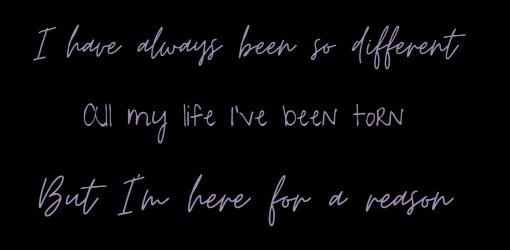In romance, people with the INTJ personality type approach things the way they do with most situations: they compose a series of calculated actions with a predicted and desirable end goal – a healthy long-term relationship. Rather than falling head over heels in a whirlwind of passion and romance, INTJs identify potential partners who meet a certain range of pre-determined criteria, break the dating process down into a series of measurable milestones, then proceed to execute the plan with clinical precision.
In a purely rational world, this is a fool-proof methodology – but in reality, it ignores significant details that INTJs are likely to dismiss prematurely, such as human nature. INTJs are brilliantly intellectual, developing a world in their heads that is more perfect than reality. People entering this world need to fit this fantasy, and it can be incredibly difficult for INTJs to find someone up to the task. Needless to say, finding a compatible partner is the most significant challenge most INTJs will face in life.
Politeness Is Artificial Good HumorSentiment, tradition, and emotion are INTJs' Achilles Heel. Social standards like chivalry are viewed by INTJs as silly, even demeaning. The problem is, these standards have developed as a means of smoothing introductions and developing rapport, of managing expectations, the basis of personal relationships. INTJs' propensity for frank honesty in word and action tends to violate this social contract, making dating especially difficult for them.
INTJ relationshipsAs they mature, INTJs will come to recognize these factors as relevant, incorporating pace and emotional availability into their plans. But the meantime can be dangerous, especially for more Turbulent INTJs – if they are shot down too many times they may come to the conclusion that everyone else is simply too irrational, or simply beneath them intellectually. If cynicism takes hold, INTJs may end up falling into the trap of intentionally displaying intellectual arrogance, making solitude their choice rather than happenstance.
Always Remain CoolThe positive side of INTJs' “giving up” is that they are most attractive when they aren't trying to be attractive, working in a familiar environment where their confidence and intelligence can be seen in action. Allowing others to come to them is often INTJs' best strategy, and if they perceive a potential to the relationship, they will spare no effort in developing and maintaining stability and long-term satisfaction.
As their relationships develop, INTJs' partners will find an imaginative and enthusiastic companion, who will share their world and at the same time grant a huge degree of independence and trust. While INTJs may never be fully comfortable expressing their feelings, and may spend more time theorizing about intimacy than engaging in it, they can always be relied upon to think out a mutually beneficial solution to any situation.
INTJs seek strong, deep relationships, and trust their knowledge and logic to ensure that their partner is satisfied, both intellectually and physically.
But when it comes to emotional satisfaction, INTJs are simply out of their element. Not every partner has the sort of fun INTJs do in addressing conflicts and emotional needs as puzzles to be analyzed and solved. Sometimes emotions need to be expressed for their own sake, and putting every outburst under the microscope isn't always helpful. If this becomes habit, or INTJs think it may, they are capable of simply ending the relationship, rather than dragging things out.
Truth and MoralityINTJs are bewilderingly deep and intelligent people, bringing stability and insight into their romantic relationships. They prize honest, open communication, and all factors of the relationship are open to discussion and change, but this must be reciprocated. INTJs do what they think is right, and sometimes that comes across as cold – it's important to know that INTJs don't make these decisions lightly. They spend a tremendous amount of time and energy trying to understand why and how things go wrong, especially if they've devoted themselves to the relationship, and they certainly hurt deeply when things fall apart.
The challenge is finding partners who share those same values – though Intuitive (N) types are uncommon, they may be a must for many INTJs, as sharing this trait creates an immediate sense of mutual belonging. Having one or two balancing traits, such as Extraversion (E), Feeling (F), or Prospecting (P) can help to keep a relationship dynamic and growth-oriented by keeping INTJs involved with other people, in touch with their emotions, and open to alternate potentials.



















 ......................
......................












 ___
___
 ____
____
 _____
_____


